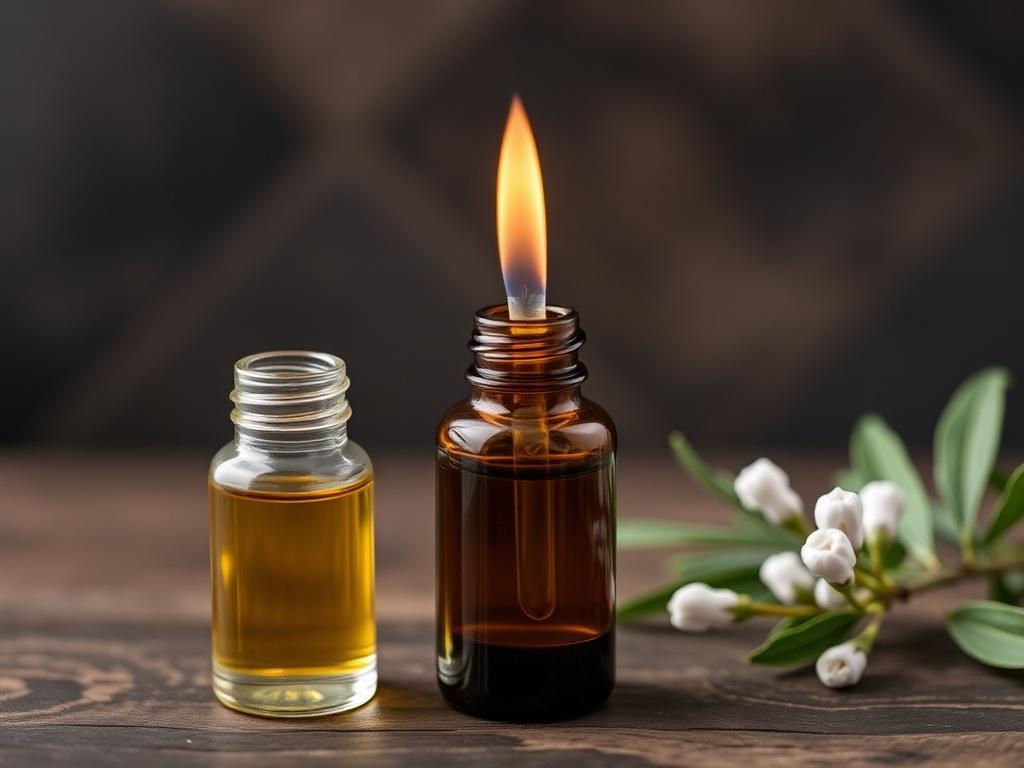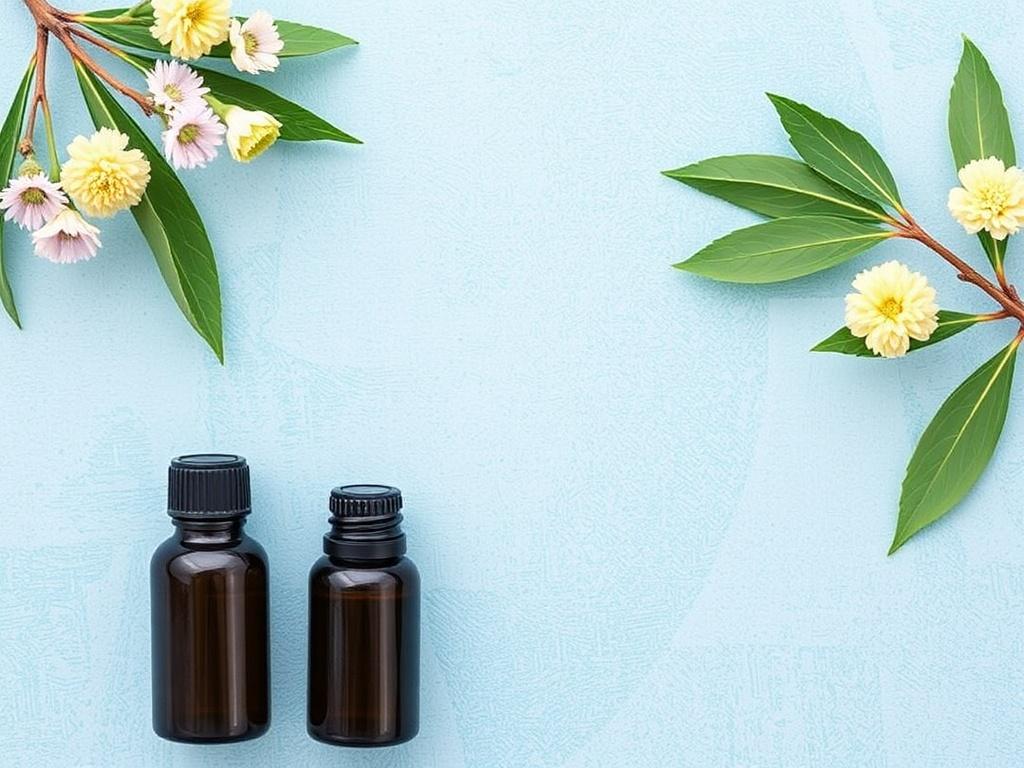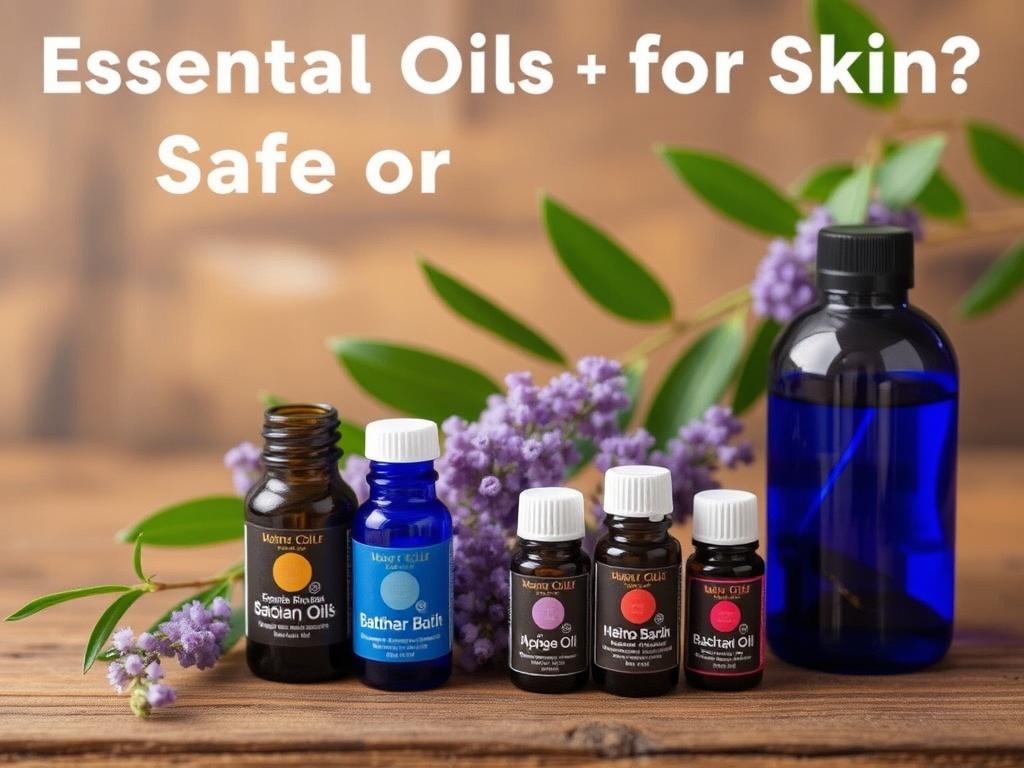Содержание статьи
- 1 What Are Essential Oils?
- 2 How Essential Oils Benefit the Skin
- 3 Possible Dangers and Risks of Using Essential Oils on Skin
- 4 Safety Tips for Using Essential Oils on Skin
- 5 Popular Essential Oils for Skin and Their Recommended Uses
- 6 How to Incorporate Essential Oils Safely into Your Skincare Routine
- 7 When to Avoid Essential Oils on Skin
- 8 The Bottom Line on Essential Oils for Skin
- 9 Conclusion
Essential oils have surged in popularity over recent years, becoming a staple in skincare routines worldwide. From lavender to tea tree and frankincense, these concentrated plant extracts promise a wealth of benefits, including soothing irritation, combating acne, and imparting a radiant glow. However, with their increasing use comes the debate: are essential oils for skin safe, or do they harbor hidden dangers? Understanding the delicate balance between benefits and risks is essential for anyone considering incorporating these potent oils into their daily regimen.
In this article, we’ll take a deep dive into the world of essential oils, exploring their skincare benefits, potential side effects, and how to use them safely. We will also address some common myths and provide practical tips to help you decide whether essential oils are a good fit for your skin type and needs. Whether you’re a skincare enthusiast eager to try natural remedies or simply curious about the hype, this comprehensive guide will help you navigate the world of essential oils with confidence.
What Are Essential Oils?
Essential oils are highly concentrated liquids extracted from the leaves, flowers, roots, seeds, or bark of plants. These oils capture the plant’s scent and flavor, or “essence,” hence the name. They have been used for centuries in traditional medicine, cosmetics, and aromatherapy due to their aromatic qualities and therapeutic properties.
When it comes to skin care, essential oils are prized for their ability to penetrate the skin and provide antioxidants, anti-inflammatory agents, and antimicrobial effects. Popular essential oils for skin include:
- Lavender oil – known for soothing inflammation and calming irritated skin
- Tea tree oil – praised for its powerful antibacterial and acne-fighting abilities
- Rosehip oil – rich in vitamins, promoting skin regeneration and brightness
- Chamomile oil – often used for sensitive or allergic skin conditions
- Frankincense oil – reputed for anti-aging and skin tone improvement
It is important to remember that essential oils are not the same as carrier oils like jojoba, almond or coconut oils. Carrier oils are vegetable oils derived from the fatty parts of plants and are often used to dilute essential oils before application to the skin, reducing the chance of irritation.
How Essential Oils Benefit the Skin
One of the reasons essential oils have gained such attention in the skincare world is their wide array of beneficial properties. Here are several key benefits essential oils offer for the skin:
Antimicrobial and Anti-inflammatory Effects
Many essential oils harbor compounds that combat bacteria, fungi, and viruses. For example, tea tree oil contains terpinen-4-ol, which has been proven to kill acne-causing bacteria. Similarly, chamomile and lavender oils help reduce redness and inflammation, making them ideal for soothing sunburns or eczema flare-ups.
Antioxidant Protection
Exposure to free radicals from pollution, UV radiation, and stress accelerates skin aging. Essential oils such as frankincense and rosehip contain antioxidants that neutralize these harmful molecules, potentially slowing down wrinkles and fine lines.
Promotes Skin Healing and Regeneration
Some oils improve cell renewal and tissue regeneration, which can help with scars, blemishes, and uneven texture. Rosehip and sandalwood oils are well-known for promoting healthy skin repair and improving elasticity.
Enhances Mood and Relaxation
While this is more of a wellness benefit, the aromatherapy aspect of essential oils can indirectly benefit your skin. Stress is a major contributor to skin problems like acne and eczema, and calming scents like lavender or chamomile can promote relaxation, thereby supporting healthier skin.
Possible Dangers and Risks of Using Essential Oils on Skin

Although essential oils can offer significant benefits, their concentrated nature means risks and precautions must be taken seriously. Many people mistakenly assume that because essential oils are “natural,” they are entirely safe. This misconception can lead to adverse reactions or even harm. Here are some potential dangers you should be aware of:
Skin Irritation and Allergic Reactions
Essential oils can cause redness, itching, or burning sensations especially if applied directly without dilution. Some oils are more likely to cause allergic reactions — cinnamon, clove, and oregano oils stand out as some of the top irritants. Even oils generally considered safe, like lavender or tea tree, can provoke sensitivities in certain individuals.
Phototoxicity
Certain essential oils, especially citrus oils (bergamot, lemon, lime, and orange), can cause phototoxicity, meaning they make your skin more sensitive to sunlight. If applied before sun exposure, these oils may cause severe burns, blisters, or hyperpigmentation.
Incorrect Usage and Overuse
Using essential oils undiluted, too frequently, or in large amounts can increase the risk of adverse effects. Some oils should never be applied directly onto the skin without proper carrier oils. Additionally, using essential oils around sensitive areas like the eyes, broken skin, or mucous membranes can cause harm.
Not Suitable for Everyone
Children, pregnant women, elderly individuals, and people with certain medical conditions need to exercise particular caution with essential oils. Some oils are contraindicated during pregnancy or if you have skin conditions like eczema. Consulting a healthcare professional is recommended before use.
Safety Tips for Using Essential Oils on Skin
Being informed about how to use essential oils safely can help you enjoy their benefits without unwanted problems. Here’s a handy checklist to ensure you’re applying essential oils correctly:
| Safety Tip | Explanation |
|---|---|
| Dilute Properly | Always mix essential oils with a carrier oil before applying to skin. A 1-3% dilution is generally safe for adults (about 6-18 drops of essential oil per ounce of carrier oil). |
| Perform Patch Test | Apply a small diluted amount to a patch of skin and wait 24-48 hours to check for reactions. |
| Avoid Sensitive Areas | Stay away from eyes, mucous membranes, and broken or irritated skin. |
| Use Photoprotective Oils Carefully | Do not apply citrus-based oils before sun exposure due to phototoxic risks. |
| Store Properly | Keep bottles out of sunlight and in a cool place to preserve oil integrity. |
| Consult Professionals if Needed | Speak to a dermatologist or aromatherapist especially if you’re pregnant, nursing, or have skin conditions. |
Popular Essential Oils for Skin and Their Recommended Uses

Let’s take a closer look at some commonly used essential oils along with their benefits and safety considerations.
| Essential Oil | Benefits for Skin | Precautions |
|---|---|---|
| Lavender | Calms inflammation, promotes wound healing, reduces acne | Generally safe; do patch test for allergies |
| Tea Tree | Antibacterial, antifungal, treats acne and blemishes | Can cause dryness or irritation if used undiluted |
| Frankincense | Anti-aging, evens skin tone, reduces scars and wrinkles | Safe when diluted; avoid if allergic to boswellia |
| Rosehip | Rich in vitamins A & C, supports regeneration and hydration | Usually safe; opt for cold-pressed carrier oil, not essential oil |
| Bergamot | Antibacterial, mood enhancer | Phototoxic; avoid sun exposure after use |
| Chamomile | Soothes sensitive and inflamed skin | May cause reactions in people allergic to ragweed or daisies |
How to Incorporate Essential Oils Safely into Your Skincare Routine
Adding essential oils to your skincare routine doesn’t need to be complicated or risky. Here is a simple step-by-step approach:
- Choose Your Essential Oil: Identify your skin concerns—whether acne, dryness, sensitivity, or aging—and select oils known to help those conditions.
- Purchase Quality Oils: Buy pure, therapeutic-grade essential oils from reputable suppliers to avoid additives or synthetic fragrances.
- Dilute with Carrier Oil: Mix your chosen essential oil with a neutral carrier oil like jojoba, fractionated coconut, sweet almond, or grapeseed. Maintain the advised dilution percentage (typically 1-3%).
- Patch Test: Before applying broadly, test on a small skin patch and wait 24-48 hours to monitor for reactions.
- Apply Correctly: Use the diluted oil on clean skin, preferably in the evening. Avoid sun exposure if using phototoxic oils.
- Monitor Skin Response: Pay attention to your skin’s reaction. If redness, itching, or irritation appears, discontinue use.
- Adjust Routine as Needed: You may apply essential oils every other day or less frequently depending on your skin’s sensitivity.
For those who want a gentler approach, many skincare products now contain pre-diluted essential oils and formulated blends designed for skin compatibility. These options might reduce the risks associated with DIY mixtures.
Common Myths About Essential Oils and Skin
Despite their popularity, essential oils are surrounded by many misconceptions. Clearing up these myths helps ensure you use them wisely:
- Myth: “Essential oils are completely safe because they’re natural.” Natural doesn’t always mean safe — they are potent chemical compounds and must be respected as such.
- Myth: “You can apply essential oils directly to the skin.” Except for a few exceptions, essential oils should be diluted to avoid irritation.
- Myth: “More essential oil means better results.” Overuse can lead to sensitization and damage; moderation is key.
- Myth: “Essential oils cure all skin problems.” While they can support skin health, they are not magic cures and should not replace professional treatments.
When to Avoid Essential Oils on Skin

It’s equally important to recognize situations where essential oils are not appropriate for skin use:
- Infants and very young children, due to delicate and sensitive skin
- Pregnant or breastfeeding women, unless oils are proven safe and approved by a healthcare professional
- If you have a history of allergic reactions or sensitive skin conditions like eczema without professional guidance
- On open wounds, cuts, or irritated skin to avoid further discomfort or infection
- Before planned sun exposure, especially with known phototoxic oils
The Bottom Line on Essential Oils for Skin
Essential oils offer a world of promise for enhancing skin health, providing natural antimicrobial, anti-inflammatory, and antioxidant properties. Many have stood the test of time and science as effective adjuncts to skincare. But their potency also means they carry risks if used improperly. Learning how to choose quality oils, dilute them safely, patch test, and respect your skin’s unique needs can empower you to reap benefits while avoiding harm.
Whether essential oils should be part of your skincare routine ultimately depends on your skin type, health status, and tolerance. For those willing to educate themselves and proceed cautiously, essential oils can be wonderful natural allies. For others, especially those with sensitive skin or medical concerns, consulting with a dermatologist before use is the wisest path forward.
Conclusion
Essential oils for skin are neither inherently safe nor dangerous; their impact depends entirely on how they are used. With the right knowledge and precautions, they can support skin health effectively and gently. Understanding the benefits alongside potential risks, observing proper dilution, and choosing oils tailored to your skin’s needs are key to a positive experience. As with any skincare ingredient, listen to your skin, patch test diligently, and seek professional advice when uncertain. Embracing essential oils thoughtfully can unlock their natural power without putting your skin at risk.

